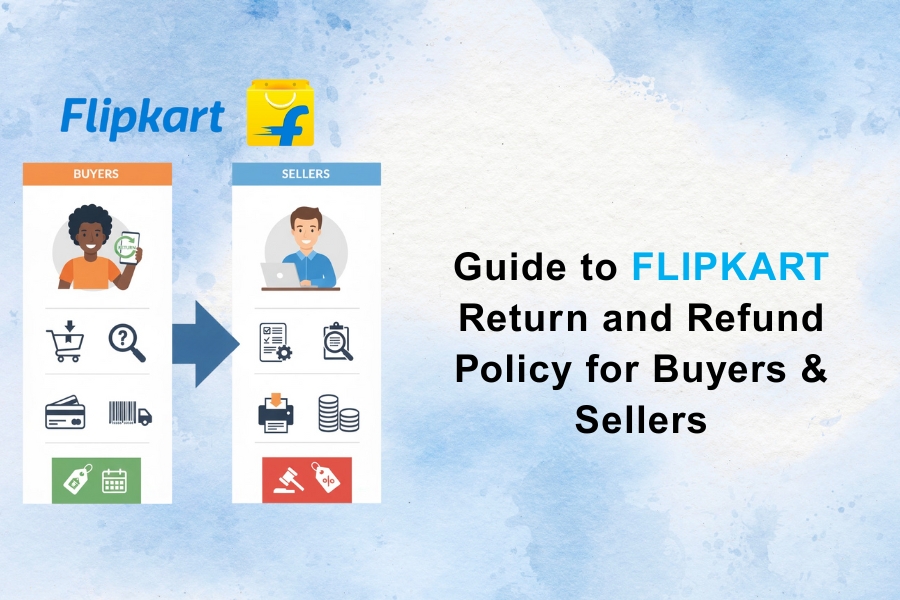Amazon FBA vs FBM: Which One Is More Profitable for Your Online Business?

If you’re planning to start selling on Amazon or scale your existing store, one of the biggest decisions you’ll face is whether to go with FBA (Fulfilled by Amazon) or FBM (Fulfilled by Merchant). Both models have their own advantages, costs, and levels of convenience. Understanding which one suits your business can directly impact your profitability, customer satisfaction, and long-term growth. Let’s break down the key differences between Amazon FBA vs FBM, explore their pros and cons, and see how professional eCommerce management services can help you maximize profits on Amazon.
What Is Amazon FBA?
Fulfilled by Amazon (FBA) means Amazon handles the storage, packaging, shipping, and customer service for your products. You send your inventory to Amazon’s fulfillment centers, and they take care of the rest.
How it Works:
-
You ship your products to Amazon’s warehouse.
-
Amazon stores, packs, and delivers orders to customers.
-
Amazon also handles returns and customer queries.
Pros of Amazon FBA:
- Prime Eligibility: Your products become eligible for Amazon Prime, increasing visibility and conversions.
- Hassle-Free Logistics: Manages amazon inventory, shipping, and returns.
- Faster Delivery: Customers receive products quickly through Amazon’s vast delivery network.
- Customer Trust: FBA products carry Amazon’s reliability and credibility.
Cons of Amazon FBA:
- Higher Fees: Storage, fulfillment, and long-term inventory fees can reduce your profit margins.
- Less Control: Limited say in how products are packaged or shipped.
- Complex Inventory Management: Excess stock can lead to high storage costs.
FBA is best suited for sellers who want scalability and convenience, especially if you deal in high-demand, fast-moving products.
What Is Amazon FBM?
Fulfilled by Merchant (FBM) means you list your products on Amazon, but you handle storage, packaging, and shipping yourself (or through a third-party logistics partner).
How it Works:
-
You list your products on Amazon.
-
You manage inventory and shipping from your own warehouse.
-
You handle customer service and returns directly.
Pros of Amazon FBM:
- Full Control: You decide how to package, ship, and manage customer service.
- Lower Costs: No FBA storage or fulfillment fees.
- Better for Low-Volume Sellers: Ideal if you sell a smaller number of items or large, bulky products.
Cons of Amazon FBM:
- No Prime Badge: FBM products may not be eligible for Prime shipping.
- Slower Delivery: Shipping times depend on your logistics setup.
- Higher Workload: You handle customer service, returns, and delivery yourself.
FBM works well for sellers who want cost control and have their own logistics setup, or for businesses selling custom or low-volume products.
FBA vs FBM: Which Is More Profitable?
Profitability depends on several factors—product type, storage costs, delivery speed, and customer expectations.
| Feature | Amazon FBA | Amazon FBM |
|---|---|---|
| Fulfillment | Managed by Amazon | Managed by Seller |
| Fees | Higher (Storage + Fulfillment) | Lower |
| Delivery Time | Fast (Prime Eligible) | Depends on Seller |
| Customer Trust | High (Amazon-Handled) | Moderate |
| Control | Limited | Complete |
| Best For | Scalable, fast-moving products | Small-scale or niche products |
If you sell lightweight, fast-moving, or Prime-eligible products, FBA can lead to higher sales despite the higher fees. However, if you have low-margin, bulky, or custom products, FBM may be more cost-effective and profitable.
Maximize Profits with eCommerce Management Services
Choosing between FBA and FBM is just the first step. To truly succeed on Amazon, you need expert support in eCommerce management services—from optimizing product listings to managing performance reports.
Professional eCommerce services help you:
-
Optimize Product Listings: Improve titles, descriptions, and images to boost visibility and click-through rates.
-
Keyword Research & SEO: Target profitable keywords to increase organic ranking and sales.
-
Inventory & Order Management: Keep your stock updated and avoid overstock or stockouts.
-
Ad Campaign Management: Run sponsored ads effectively to reduce ACOS (Advertising Cost of Sale).
-
Performance Analysis: Track revenue, conversions, and ROI with detailed reporting.
-
Review & Rating Management: Handle customer feedback to maintain a positive seller reputation.
Whether you choose FBA or FBM, having a dedicated team for Amazon account management services ensures that your store remains competitive, visible, and profitable.
Final Thoughts
Both Amazon FBA and FBM have their unique advantages, and the right choice depends on your business size, product category, and goals.
-
If you want scalability, convenience, and Prime access, FBA is your best bet.
-
If you prefer cost control and flexibility, FBM offers better independence.
No matter which you choose, combining it with professional firm Novel Web solution can help you streamline operations, improve rankings, and maximize profit margins.
Start your Amazon journey smartly—choose the right fulfillment model and partner with experienced account management experts to grow your eCommerce business efficiently.






